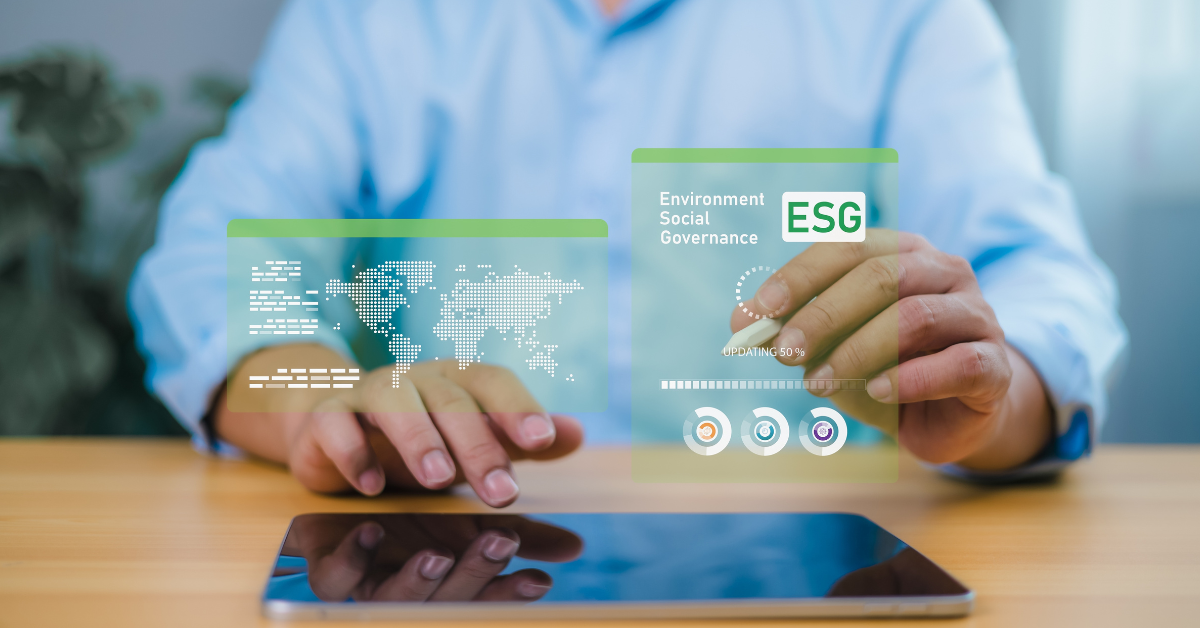
Integrating ESG principles into your business strategies can drive growth and attract investments. Here you find 5 reasons why.
The rising concern about global environmental degradation, climate change, and social matters such as labour conditions and inequalities has driven companies to integrate sustainability in their business strategies in a shift towards corporate responsibility.
In this context, integrating Environmental, Social, and Governance (ESG) principles into business strategies is proving to be a game-changer in the corporate world.
Highlighting the shift toward a greener economy, the 2022 KPMG Global Sustainability Reporting survey noted that over 90% of the world's largest companies now produce ESG reports, highlighting the growing emphasis on sustainability.
This shift is not just about compliance or corporate responsibility; it's about leveraging ESG to drive innovation, attract investment, and secure a competitive advantage.
As stakeholder expectations evolve and regulatory landscapes shift, businesses must adapt by embedding ESG into their core operations.
Let’s find out 5 ESG strategies that boost business growth!
5 ways ESG drives business growth
1. Attracting Investors and Capital
One significant way ESG can boost business growth is by attracting investors who are increasingly focused on sustainable and responsible investments as proved by the Global Sustainable Investment Alliance (GSIA) which proved that sustainable investment assets reached $35.3 trillion in 2020, accounting for 36% of all professionally managed assets globally.
This surge reflects a growing investor preference for companies with strong ESG performance, as they are perceived to offer better long-term returns and reduced risks.
2. Enhancing Operational Efficiency
Effectively integrating Environmental, Social, and Governance (ESG) principles can lead to substantial cost reductions for organizations as reported by research from McKinsey where it is demonstrated that ESG strategies help mitigate rising operational costs, such as those related to raw materials, water, and carbon which can impact operating profits by as much as 60%.
In their analysis, McKinsey introduced a metric evaluating the energy, water, and waste consumed relative to revenue, uncovering a strong correlation between resource efficiency and financial performance.
A practical example that supports McKinsey's findings is given by CRIF, which, by implementing eco-friendly practices such as energy-efficient technology, modernized its offices and reduced electricity consumption by 49% and gas consumption by 73%.
3. Strengthening Brand Reputation and Customer Loyalty
Companies with strong ESG commitments can enhance their brand reputation and foster customer loyalty in an age where consumers are more socially and environmentally conscious.
A Nielsen study found that 81% of global consumers feel strongly that companies should help improve the environment.
Brands like Patagonia and IKEA have gained customer trust by prioritizing sustainability and ethical practices, which not only differentiates them in the market but also drives sales growth.
4. Mitigating Risks and Ensuring Compliance
ESG integration helps businesses identify and mitigate risks associated with environmental regulations, social issues, and governance failures.
Compliance with ESG standards can prevent costly legal issues and enhance resilience against market volatility. For instance, companies that proactively reduce carbon emissions are better positioned to adapt to stringent environmental such as CBAM, avoiding penalties and operational disruptions.
5. Gaining control over the Value chain
Adopting sustainability initiatives allows companies to gain control over their supply chain and engage stakeholders more effectively.
By integrating sustainable practices, companies can monitor and improve ESG performance across the value chain.
This proactive approach not only helps to minimize risks related to compliance, resource scarcity, and social unrest but also establishes a framework for continuous improvement.
For instance, a key instrument in this case is given by ESG Score such as Synesgy.
Companies with high ESG ratings are often seen as more reliable and transparent, leading to stronger relationships with suppliers, investors, and customers. These ratings provide a benchmark for assessing performance, facilitating improved collaboration with stakeholders who prioritize sustainable operations.
Additionally, high ESG ratings can result in better financing opportunities and lower capital costs, further incentivizing the adoption of sustainable practices across the supply chain.
70% expect climate change to impact strategies and operations over the next three years significantly
Conclusions
Incorporating ESG principles into business strategies is not just about ethical responsibility; it's a strategic approach that drives growth and ensures long-term success.
By attracting investment, enhancing operational efficiency, strengthening brand reputation, mitigating risks, and fostering innovation, ESG integration positions businesses to thrive in a rapidly changing world.
As stakeholders increasingly value sustainability, companies embracing ESG will lead the way in building a resilient and prosperous future.



